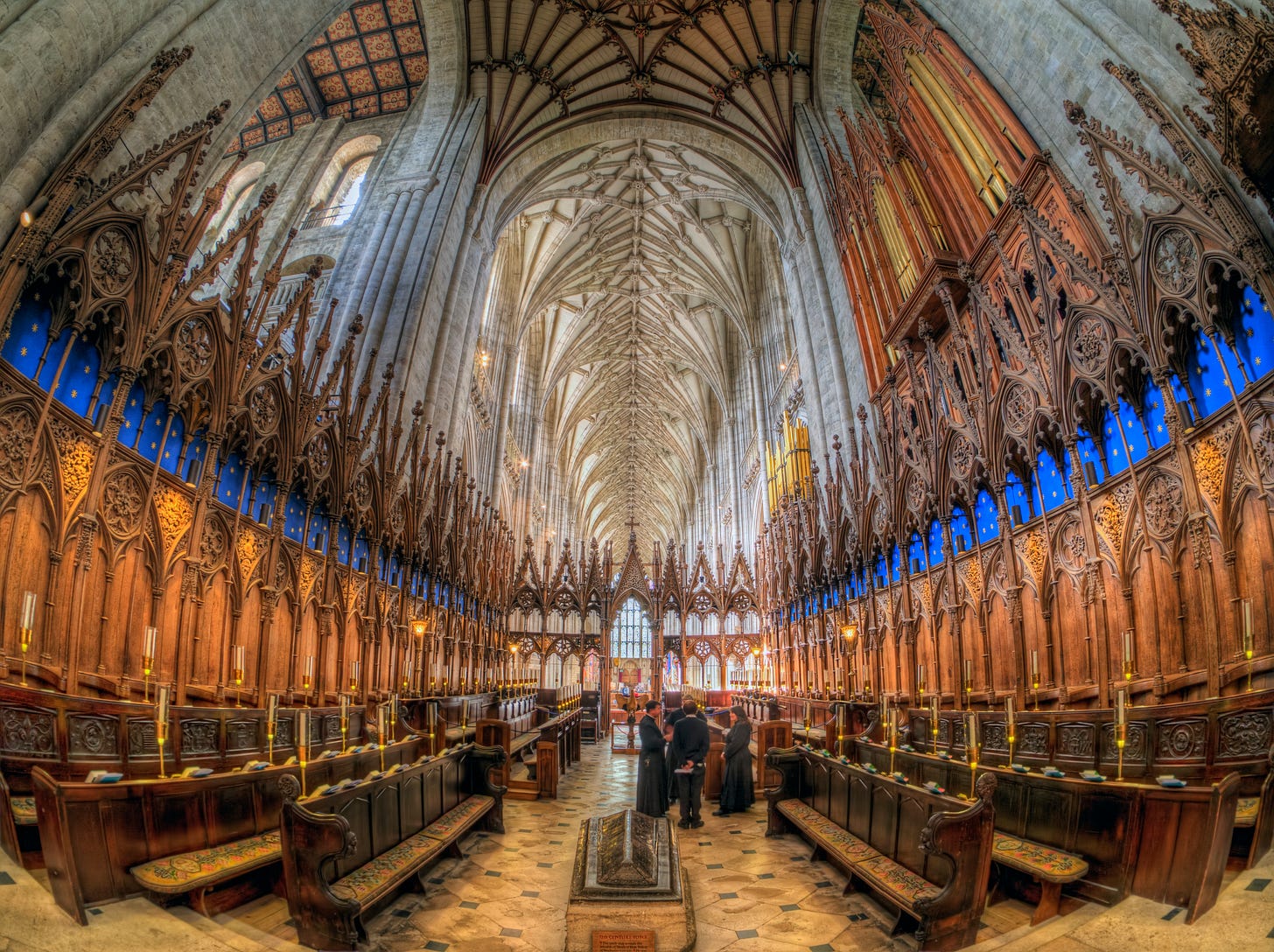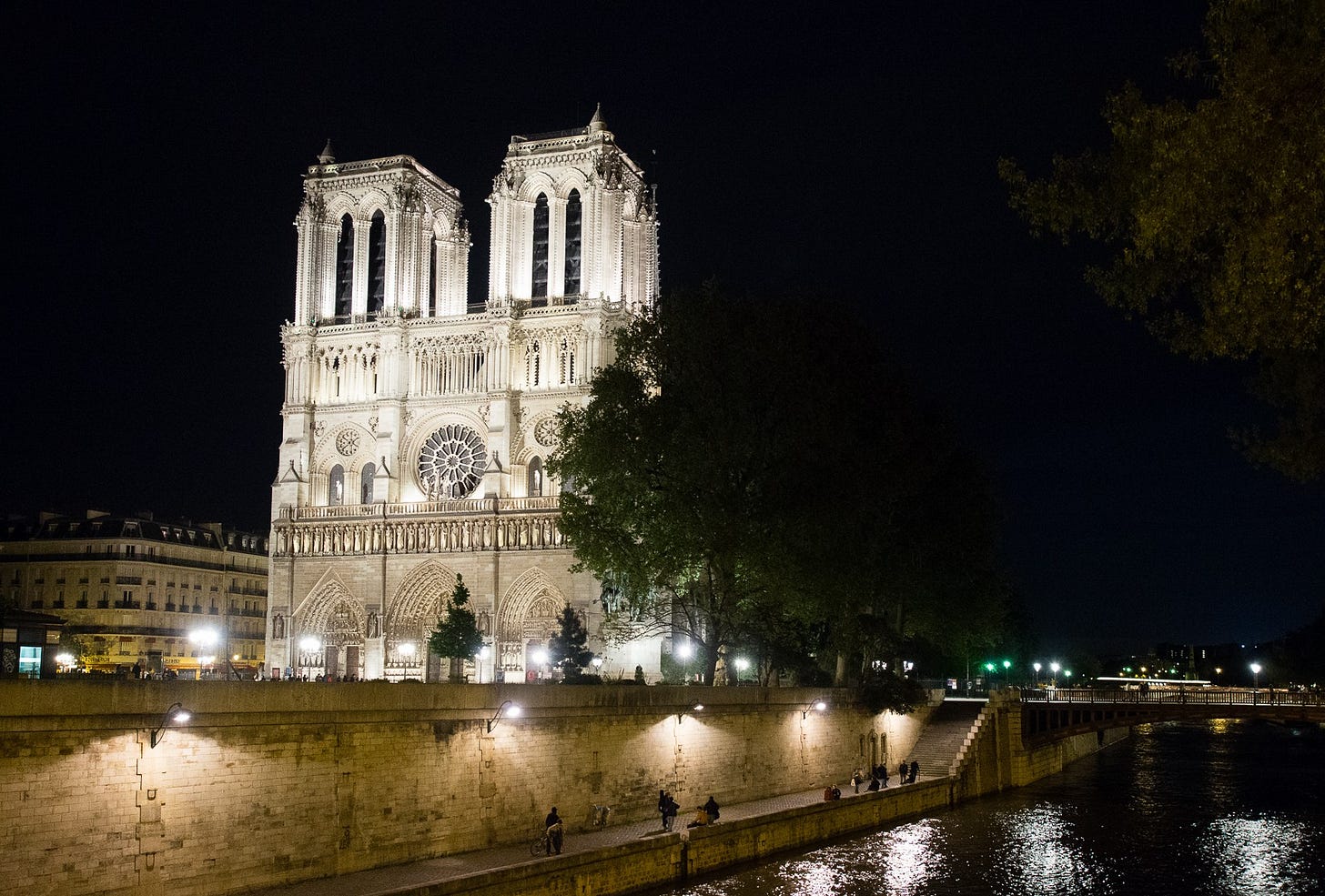2025: The return of faith, flag and family?
By speaking up for the Jews, we will speak up for ourselves
I have a theory. You know how the late Rabbi Lionel Blue said that Jews are “just like everyone else, only more so”? I suspect that this may be one of the ingredients in the ancient and toxic brew of antisemitism.
Whatever qualities a man may revile in society, he can observe with greater vividness in the Jews. Take the current progressive radicals. Their brute Israelophobia goes hand-in-hand with their trans dogma, their race dogma, their climate dogma and their anti-imperialist dogma. Peel back the virtuous rhetoric, however, and what they truly oppose is liberal democracy. The Jews are appropriated as a proxy for this.
It’s obvious when you take a step back. Palestine activists have not just targeted Israelis and Jews. In the same movement, they have menaced symbols of Britain itself, like the Union Flag, the statue of Winston Churchill and the cenotaph. In the United States, meanwhile, they have burnt the Stars and Stripes.
It is all hilariously superficial. These people despise the British Empire, for instance, but couldn’t give a hoot about that of the Ottomans. They deplore British and American slavery but turn a blind eye to the Arab and African slave trades, as well as the variant that persists in many parts of the world today.
This hypocrisy is of a piece with the mechanism of antisemitism. Look at Syria, where Turkey has occupied 5,500 miles of land, savagely attacked and displaced the Kurdish minority and is extending its influence into the halls of government in Damascus. More than half-a-million Muslims have been killed in the civil war, including many Palestinians in the south. But these aren’t the right villains, you see.
In the eyes of these radicals, Jews always take centre stage as monstrous caricatures of colonialists, ethnic cleansers, génocidaires and baby killers. But as gratifying as these cartoons are to the archetypical instincts of the antisemite, there are more complex constructions as well, which reveal a good deal about the struggle that is taking place at the heart of Western culture.
Whether warranted or not, Jews are perceived to have a distinct identity that sits outside the mainstream; a tribal loyalty; tight-knit families and a love of children; a devoted bookishness; a stubborn and inexplicable genius in everything from physics to finance; a pesky and wicked humour; a dogged adherence to liberal democratic principles; and the habit of surviving everything. They are also perceived to be people of faith.
The truth of this last point is characteristically complex. Only one in three Jews believe in God, which is about the same as gentiles. Interestingly, however, Jews are half as likely to be atheists; a recent study found that “just one in four Jews don’t believe in God or any other type of higher power or spiritual force, compared with one in two generally”.
By the same token, more than half of paid-up synagogue members do not believe in God, and nearly two in five Jewish atheists belong to a synagogue. For Jews, therefore, the performance of faith is as much part of the assertion of identity and belonging as it is a profession of belief in the divine.
Isn’t that ultimately what religion is about? Traditionally, Britons held a tripartite loyalty to faith, flag and family. It didn’t really matter if you believed in God; in fact, a dilute agnosticism is practically a requirement in the Church of England. In this way, Jews can be seen as a proxy for the silent majority.
This quiet conservatism – let’s call it by its name – describes the fundamental instincts of your average Englishman. On Remembrance Sunday, my wife (who is a Christian) and I went to the service in Winchester Cathedral, followed by a ceremony at the war memorial outside.
Normally, the place is mostly empty. On this occasion, however, very single seat in the house was full. There was an abundance of uniforms and military families and an overwhelming sense of – how shall I put it – decency. These were among the best people in the city, the best people in Britain, gathering to remember the fallen.
Much has been written about the apparent resurgence in faith in the West. The historian Niall Ferguson recently admitted to becoming a “lapsed atheist”, joining his wife, Ayaan Hirsi Ali. Then there’s Tom Holland and Russel Brand (does he count?).
As the Christian writer Justin Brierley put it: “The New Atheists of the early 2000s – led by Richard Dawkins, Sam Harris, Christopher Hitchens and Daniel Dennett – predicted a utopia founded upon science and reason once we had abandoned religion. But their bestselling books proved to be full of empty promises. All that our post-Christian society has delivered so far is confusion, a mental health crisis in the young and the culture wars. It’s not surprising then that a movement of New Theists has sprung up.”
It’s important not to overstate this. Less than half the population of England and Wales is now Christian, according to the census, and the fact that Anglican churchgoing increased by five per cent last year did little to mitigate the downwards trajectory that it has been following for decades.
But it’s important not to understate it, either. The traditional restoration of Notre Dame made many souls sing and the architect’s admission that he was guided by a religious impulse caught the public imagination. If we take faith as an expression of identity and belonging, this resurgence may be seen as an early sign of a cultural movement away from liberal nihilism and towards those values that lie at the foundation of our society.
I have written before, sometimes with greater optimism and sometimes pessimism, about the silent majority. It remains my view that if we are to quell the fires of antisemitism and restore the self-confidence of the West, the majority must learn to be rather less silent.
There are signs that this is happening. Maybe not yet at the scale that is needed, but around the country, one by one, the moral eyes of individuals are flicking open, each creating a little cause for hope. Recently, I have noticed that the best people I know are either turning to faith or quietly had it already. Without faith, I think, one is often left half a person. That is to say, all head and no heart.
As we head into 2025, there are signs that a significant cultural shift may be underway. I’m not arguing that everybody needs to embrace religion. And I’m not talking about Donald Trump, though he is undeniably part of the scene.
I’m talking about the gentle awakening of ordinary people, the realisation that our values of liberalism, tolerance, democracy – the right of every person to pursue his own happiness in his own way without interference – are good things and worth standing up for. After all, we can defend faith and benefit from its place in society even if we don’t have it.
That is why antisemitism is such an affront to all of us. It is the vanguard of an assault upon the values that lie at the heart of our democracies. If Jews are targeted for their association with faith, flag and family, it is time for the rest of society to speak up; and in so doing, to speak up for themselves.





